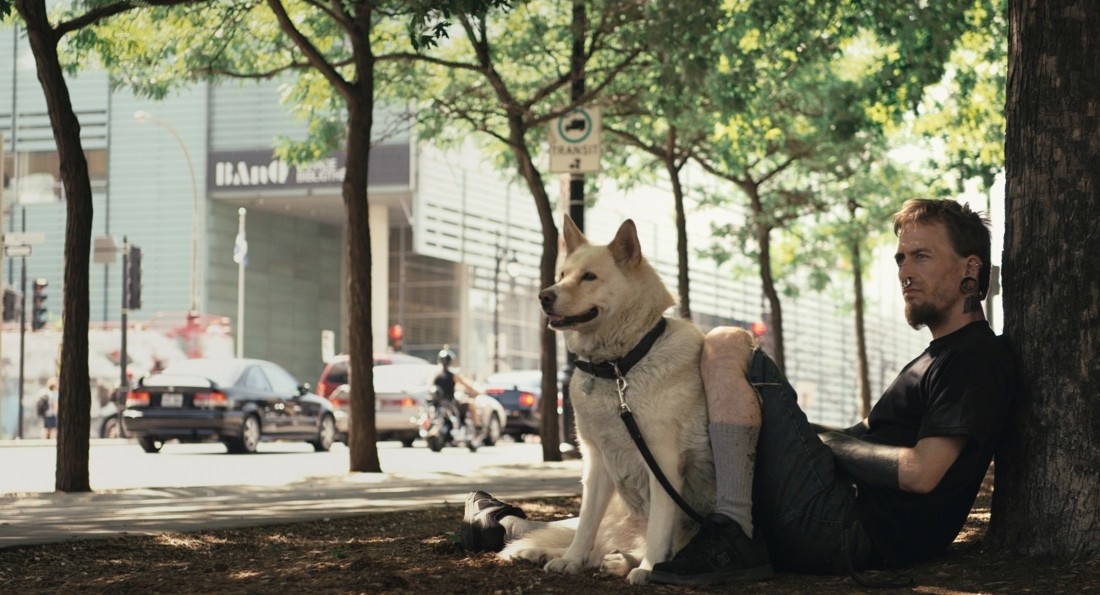Critipeg
A Dog’s Life (Chienne de vie)
Plays at Cinematheque Oct. 13 as part of the Spare Some Change festival.
The relationship between humans and dogs is historically significant. Our “best friends” have lived among us for thousands of years. We share body language and social cues, and the bond between dog and caregiver is profound.
Hélène Choquette’s documentary, A Dog’s Life, shows how homeless people and their dogs have heightened relationships, as well as how society tries to pry them apart.
The film follows a handful of individuals in Toronto and Montreal experiencing varying degrees of homelessness. Some are addicts, recovering or otherwise. Others are living in the aftermath of mental illness, divorce or a life behind bars. Some have a bed in Bethlehem United, Toronto’s only pet-friendly homeless shelter. Others live in cars or tents or beneath trees or bridges.
All the subjects credit their dogs as the reason they’ve survived. They narrate their own stories with sensitivity, but never at the expense of brutal honesty. The absence of an objective narrator or any kind of onscreen exposition gives the film a confessional feeling. We’re hearing the stories of people who are rarely invited to share them.
That lack of narration doesn’t always help the film. Its omission raises questions the film can’t answer. For example, the film’s subjects are overwhelmingly white, and Choquette never indicates why. Is it easier for white people on the streets to find pets than it is for people of colour? If so, it’s a topic ripe for exploration. Unfortunately, the film doesn’t go there.
Published in Volume 71, Number 5 of The Uniter (October 6, 2016)







